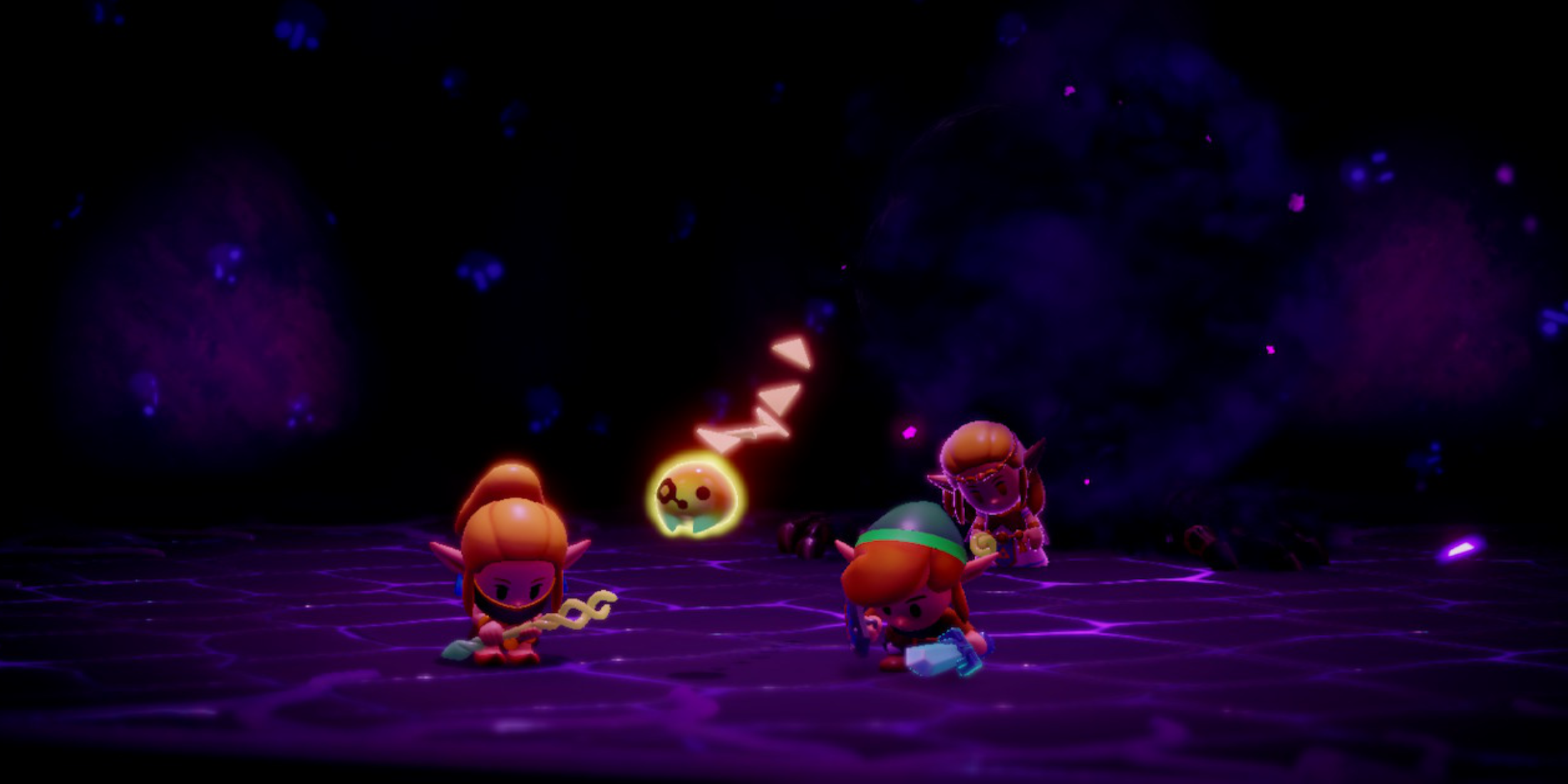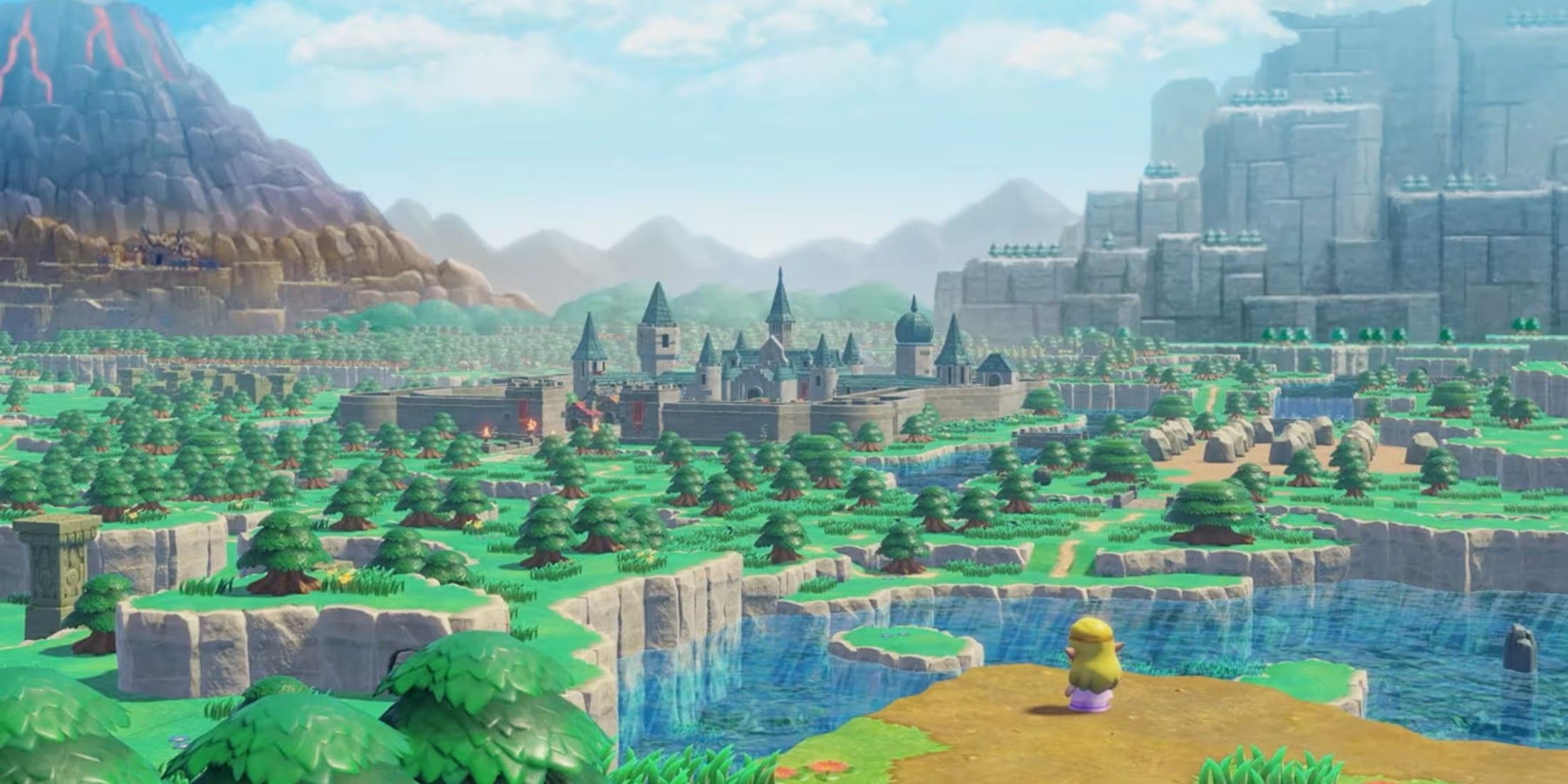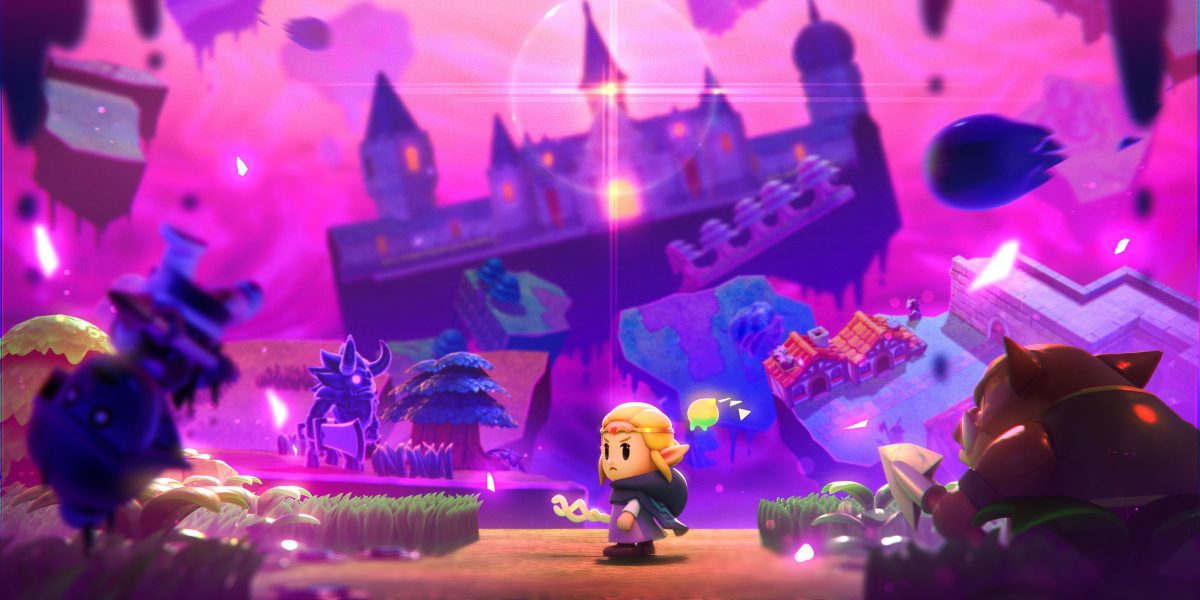
What The Legend of Zelda Movie Could Learn From Echoes of Wisdom
Key Takeaways
- Zelda as the protagonist offers unique gameplay & dynamic narrative possibilities.
- A potential movie should balance Zelda’s quirky side quests with essence of Zelda essence.
- Echoes introduces game-changing mechanics and fan-favorite elements, staying true to Zelda while innovating.
The Legend of Zelda: Echoes of Wisdom is now available on Nintendo Switch, marking a significant milestone as the iconic franchise’s titular heroine finally takes center stage in her own game. Princess Zelda’s breakout moment is vividly illustrated in the game’s opening moments, when she breaks free from her floating, diamond-shaped prison after Link is consumed by one of Ganon’s mysterious rifts.
Just two years from the franchise’s 40th anniversary, and building on the momentum of a string of acclaimed entires released in recent years, it appears that the only achievement Zelda has left to accomplish is making her big-screen in a feature film. Wes Ball, a self-proclaimed Zelda superfan and director of the Maze Runner series as well as the recent Kingdom of the Planet of the Apes, is set to direct the upcoming live-action adaptation.
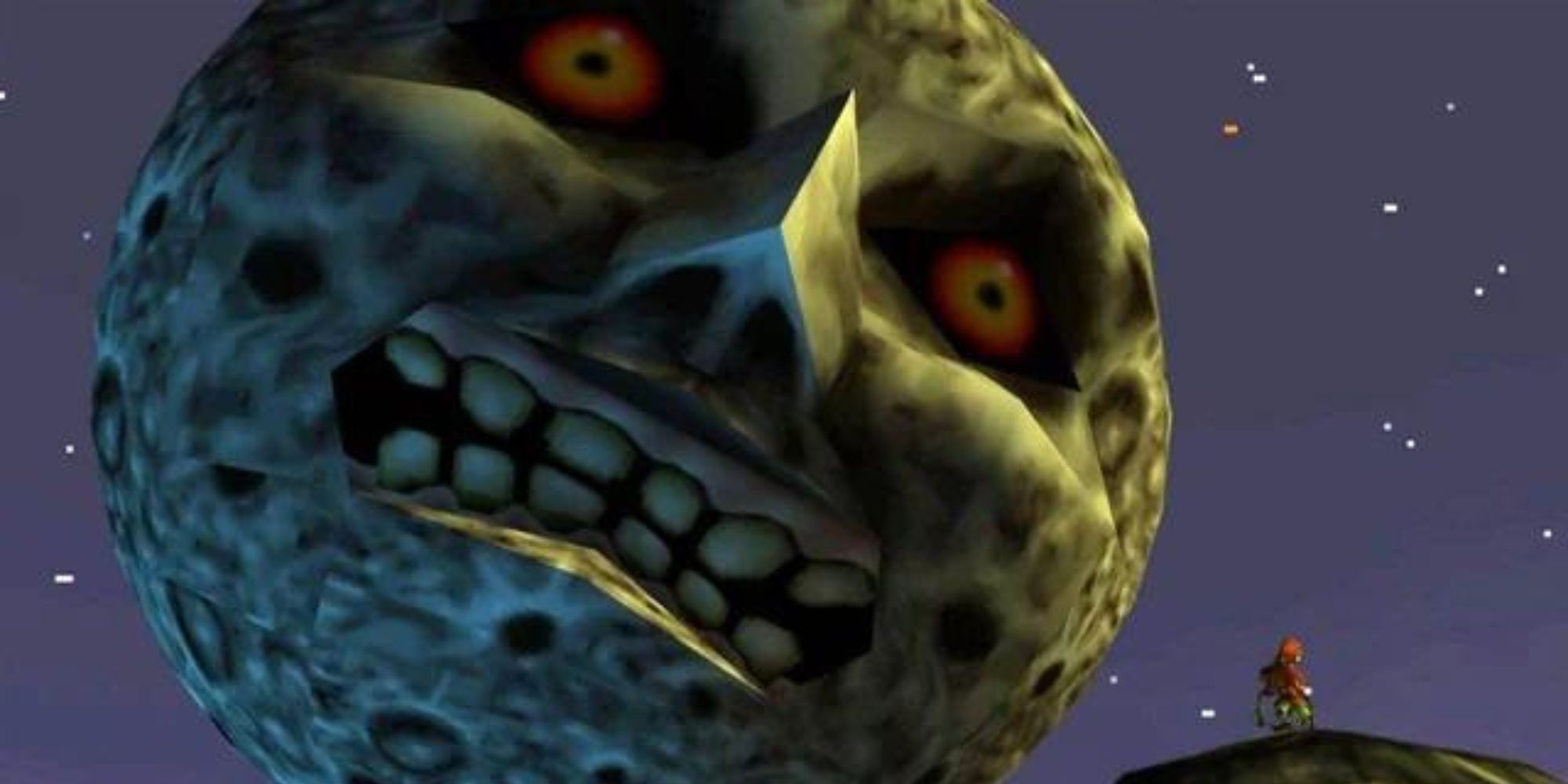
Related
The Legend of Zelda Movie Needs To Be Scary
Though this beloved fantasy series is quintessentially optimistic, the first film adaptation shouldn’t ignore its horror elements.
Any major work of adaptation comes with a high risk of losing the essence of what made its source material special in the first place. However, in recent years, thanks to critical and financial successes like the Sonic movies and the Fallout and The Last of Us TV shows, the tide may finally be starting to turn for video game adaptations. But with all due respect to these projects, none of them carries the same cultural weight and historical significance that a franchise like The Legend of Zelda does.
The inherent challenge of adapting The Legend of Zelda into a movie, among many, is finding a way to recreate the intimate feeling of discovery and wonder one experiences while playing the games. The last three new mainline Zelda games, beginning with The Legend of Zelda: Breath of the Wild and now continuing with Echoes, have enabled and rewarded players’ instincts to venture off the beaten path in an unprecedented way, even for a series that has always set the standard for freedom of exploration in the RPG genre.
Without even a still image or piece of concept art to go on, let alone a trailer or news of casting, it’s impossible to say what direction the highly-anticipated adaptation will take. Where will the movie fall on the tonal spectrum between the colorful, Saturday-morning cartoon esthetics of Echoes of Wisdom or The Legend of Zelda: The Wind Waker, and the gloomy, dreamlike air of melancholy that defines games like The Legend of Zelda: Twilight Princess and The Legend of Zelda: Majora’s Mask. Ideally, the upcoming adaptation will strike a healthy balance between the tonal polarities that the franchise often shifts between, from game-to-game.
The Legend Herself
There are numerous subtle differences to a Zelda game that’s actually led by Zelda herself. For example, in all previous installments, Link would be thrown out of the matriarchal community of Gerudo Town unless he disguised himself in the local attire. In Echoes, Zelda can simply walk right into Gerudo Town, no questions asked. However, if the princess and the hero of Time share anything as protagonists, it’s that they don’t just make Hyrule a better place by defeating Ganon alone. When Zelda isn’t busy patching up rifts across Hyrule, she’s helping out local townsfolk by cutting their grass, mending their marital spats, or chasing down their wayward farm animals. Among other things, she sells assorted monster parts to a business-savy Deku scrub in Gerudo desert, supplies a fireworks’ artist in Goron City with blastpowder to complete his work, and participates in a number of bizarre side hustles such as mango-harvesting, acorn-fetching, and stamp-collecting, to earn a few extra rupees when she can. Ball shouldn’t omit these whimsical kind of detours from his Zelda movie for the sake of a constantly propulsive narrative engine. The distinctive atmosphere and quirky side characters of Echoes of Wisdom are what give the game an utterly unique sense of place—something that has always set the franchise apart.
With Princess Zelda front-and-center, Echoes‘ game play is, fittingly, unlike anything else in the series thus far. Echoes reinvents the 2D Zelda formula the same way Breath of the Wild reinvented the open-world RPG Zelda, by shifting the overall gameplay from a hack-and-slash, to an entirely magic-based brain-teaser style-combat, with the addition of the echoes mechanic. These changes fundamentally alter the 2D Zelda formula as fans have known it for decades. The “Echoes” in the title refer to Zelda’s ability to use an item called the Tri rod to summon and recreate everything from enemies to household objects, and use them at her will. Now, with the ability to clone and instantly recall everything from enemies to household objects, combat and traversal in 2D Zelda will never be the same. Echoes more than maintains its intrinsic Zelda-ness, while adding radical new gameplay elements into the mix, making it feel entirely new as a whole. The lesson being; changing the protagonist, changes everything.
Making Princess Zelda the protagonist in the first live-action movie of her namesake franchise would, admittedly, be a bold move for Ball to make. However, recent projects like Scott Pilgrim Takes Off have proven that a full-on bait-and-switch reversal of audience expectations can be—if executed with care and creativity—a wonderful shot of much-needed vitality into a beloved franchise. At the very least, potential Legend of Zelda sequels should strongly consider following Echoes lead, by giving the princess control of the narrative reins. Doing so would introduce so many intriguing possibilities. A Sheik appearance may even be in the cards if we’re so lucky.
Dungeons, Puzzles, and Gadgets
The introduction of the echoes mechanic is emblematic of Nintendo’s recent trend across its marquee franchises towards a kind of creative optionality, increasingly allwoing players to choose how they want to play. The series arguably began subverting its traditional formula in the 3Ds classic A Link Between Worlds, in which players could immediately rent items from the merchant Ravio, from almost the outset of the game’s story. Wth Echoes of Wisdom, the series continues to give fans more freedom of movement and control over combat strategy than they’ve ever had before. How one player chooses to solve a puzzle, or defeat a mini-boss, or summit a high mountain peak, could be entirely different from the next. But similar to Tears of the Kingdom, you can complete the game as it was intended by sequentially completing the main dungeons and acquiring the necessary power-ups to defeat Ganon. Or you could spend 100 hours building a giant robot with the game’s building mechanics.
While the newfound freedom of traversal and battle strategy has been largely accepted by the Zelda fanbase, some purists have expressed a desire to see the series return to its traditional “one-new-weapon per dungeon” model. Their argument being, that having to earn one key weapon per dungeon, be it the fire rod, or the boomerang, gives each acquisition of a new weapon a monumental feeling, and a more noticeably transformative effect on game play. Ball’s adaptation could potentially give fans an ideal synthesis of both these approaches. Link, and or Zelda, need to be seen onscreen utilizing their vast inventory of iconic weapons and gadgets. The moment in the movie when Link unleashes the power of his double-hookshot, or Zelda launches a golden arrow from her bow of light, will be all the more satisfying after we have lived through the trials thta they had to pass in order to acquire them.
A signature element of the franchise is slashing, dashing, and rolling your way through the depths of the Elden temple, or scaling the towering heights of Dragon Roost Island. Ball’s Kingdom of the Planet of the Apes contains subterranean sequences that take place beneath the derelict former human world that capture a similar spirit of pseudo-archaeological adventure. All The Legend of Zelda’s greatest dungeons, from the frozen mountain labyrinth of Lanayru Temple in Echoes of Wisdom, to the sky-scraping awe of the temple of Time from Wind Waker, all evoke the feeling of discovering lost secrets, passed down from some long-forgotten age. Ball’s movie has the opportunity to not only nail the quintisentially-Zelda sensation that comes from finally cracking a complex puzzle while exploring the bowels of an ancient gerudo pirate cove, it could, if done right, end up being a better Uncharted movie than the Uncharted movie itself.
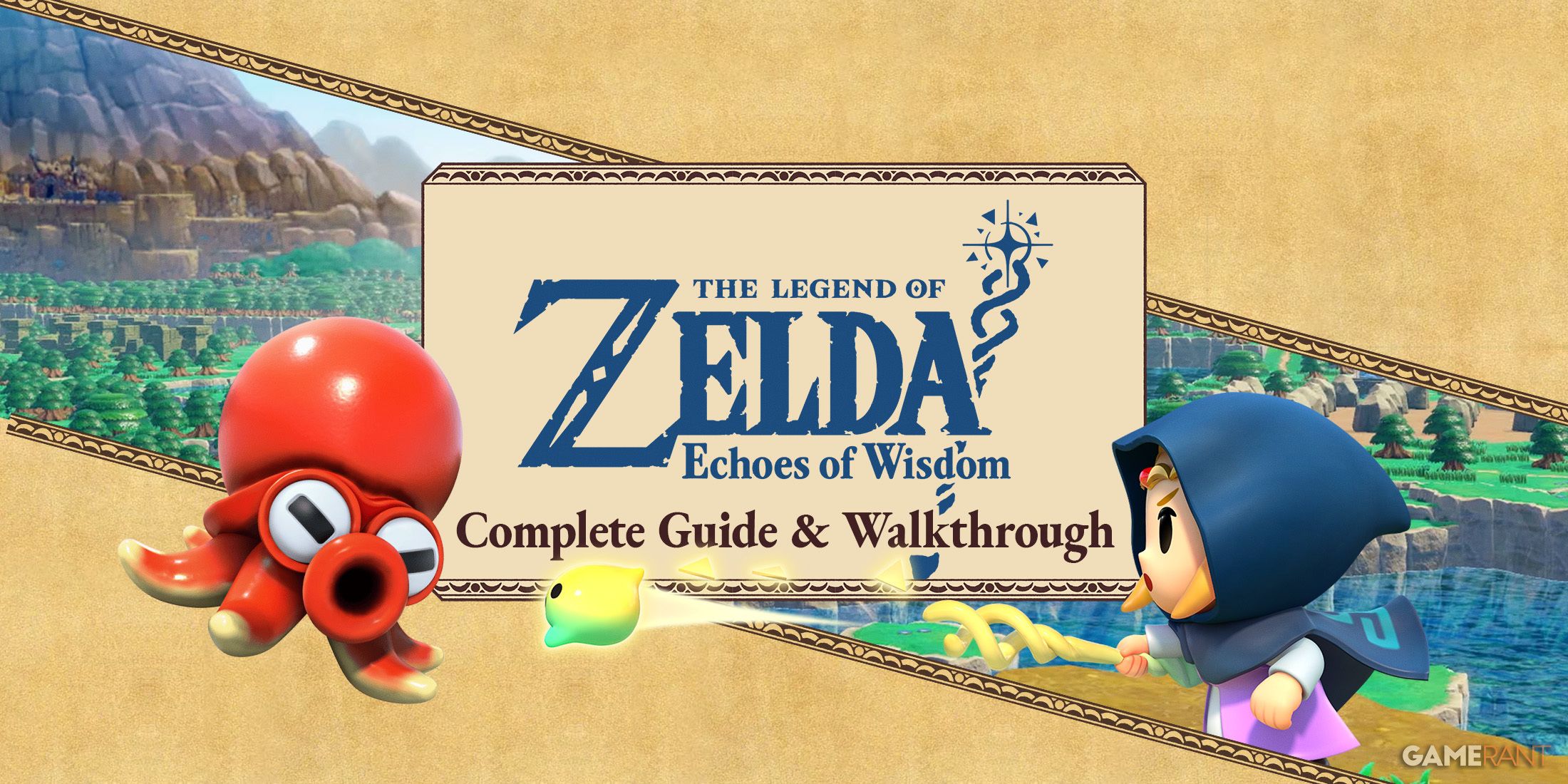
Related
Zelda: Echoes of Wisdom – Complete Guide & Walkthrough
Help Zelda save Hyrule with this collection of guides and walkthroughs for The Legend of Zelda: Echoes of Wisdom.
Past and Present
The cultures and races of Hyrule have long been a staple of the Zelda series. Be it the Gerudo, Zora, Goron, or the Rito, each culture has its own distinct look, lifestyle, ecosystem, and signature musical style. Echoes even brings back the illusive Yeti who previously only appeared in Twilight Princess, as well as the beloved Deku scrubs from fan-favorite Majora’s Mask. Ball’s Zelda adaption would be sorely lacking in both depth and color without the prominent inclusion of Hyrule’s diverse population.
Echoes constantly references the history of the franchise’s environmental storytelling, with a deep sense of the past being expressed even in the design of Hyrule; eagle-eyed gamers can spot carvings of Loftwings from Skyward Sword on the walls of Hyrule castle, Lueberry wears the symbol of the Skeikah on his robes. Nearly every corner of the game is jam-packed with meaningful details that imbue the world with a palpable sense of history.
Nailing the music will be a massive component of a quality Zelda movie, as the series boasts perhaps the greatest canon of original music composed for any gaming franchise. The “Overworld Theme” alone is so well-known that it has transcended the game itself, becoming a universally recognized anthem of adventure. Armed with Nintendo’s full support, Ball and his composer should have complete access to the entire catalog of hits. Picking and choosing the right themes for the movie, along with composing original works that can stand up to the caliber of the established canon, will be a challenge in its own right.
Preserving all the essential elements of the franchise without force-feeding fan service can be a tricky balance to strike in video game adaptions. It is a Legend of Zelda story, so it’s safe to assume that some version of the following things will occur; Link wielding the master sword skyward, a fairy guide-mother character advising our hero on their quest, a climactic showdown against Ganon in Hyrule field, and, at some point, the protagonist being thrown in jail only to escape with help of some newfound ability. But these markers alone don’t make a great Zelda story. The texture of a game like Echoes of Wisdom is found in its commendable mixture of classic Zelda tropes and innovative game design. Ball’s adaptation should aspire to do the same.
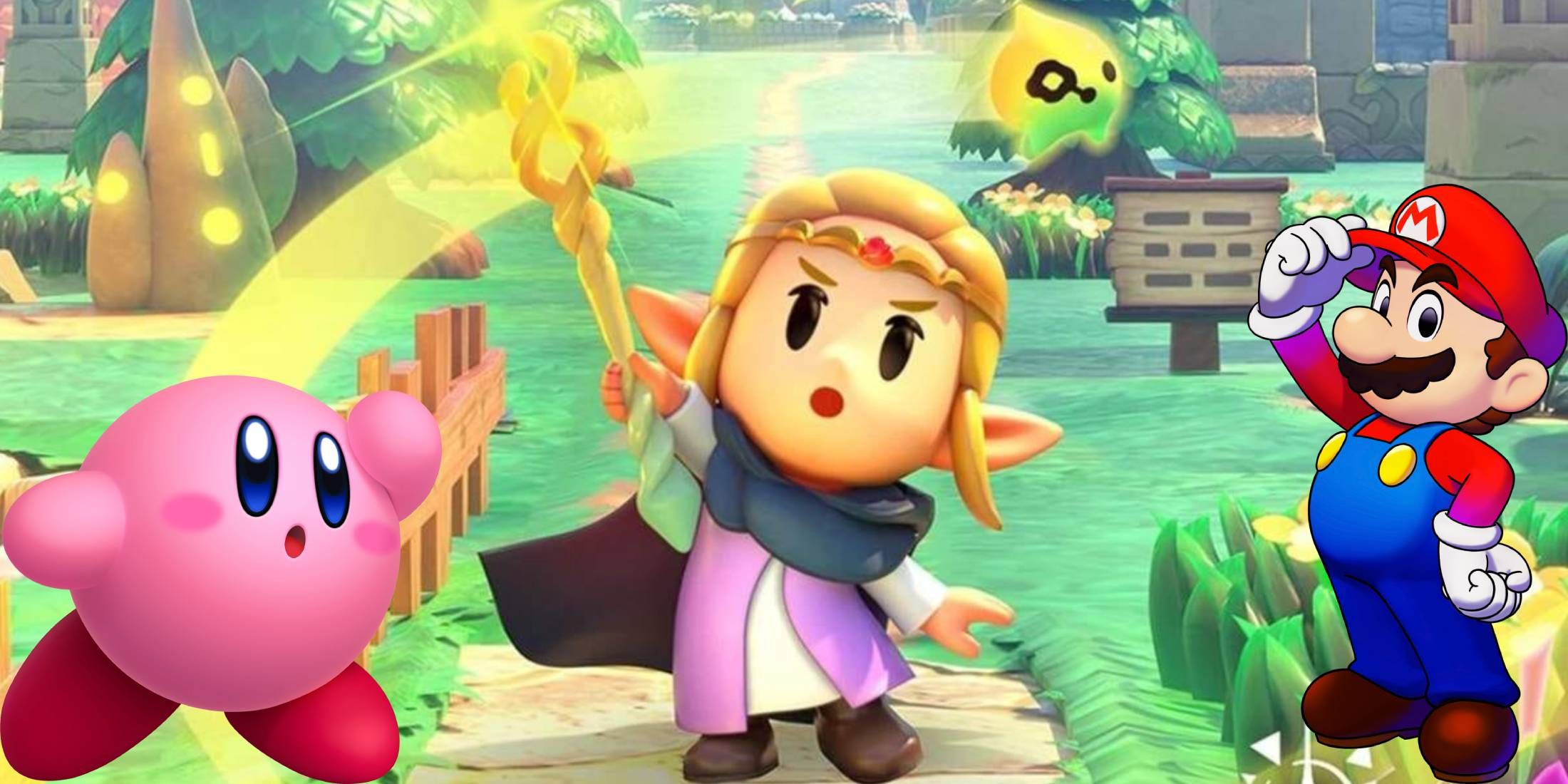
Read Next
Nintendo’s Other Franchises Are Hopefully Watching Zelda: Echoes of Wisdom Closely
The Legend of Zelda: Echoes of Wisdom takes the series in a direction that could be a benefit to several Nintendo IPs in the long run.


